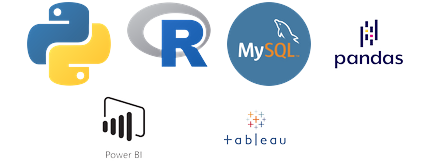I’m Ankit Srivastava, a Digital Marketing Leader and IT Trainer with over 12 years of experience mentoring thousands of learners in data analytics, business intelligence, and technology. From my perspective, one of the most exciting and rewarding career paths in today’s financial world is becoming a Quantitative Analyst (Quant). Quants use the power of mathematics, statistics, and programming to solve complex financial problems, driving innovations in algorithmic trading, risk management, derivatives pricing, and portfolio optimization for investment banks, hedge funds, and asset management firms.
If you aspire to work at the intersection of mathematics, finance, and technology, here’s a step-by-step roadmap to becoming a Quantitative Analyst.
1. Understand the Role of a Quant
A Quantitative Analyst applies mathematical and statistical models to financial data. Their work involves pricing derivatives, risk modeling, high-frequency trading algorithms, and portfolio optimization. Quants need both financial acumen and strong computational skills.
2. Build a Strong Foundation in Mathematics
Quants rely heavily on mathematics. Core subjects to master include:
- Linear Algebra – matrices, eigenvalues, eigenvectors
- Calculus – differential equations, multivariable calculus
- Probability & Statistics – stochastic processes, distributions, hypothesis testing
- Optimization – linear and non-linear programming
- Numerical Methods – solving equations computationally
3. Master Programming Skills
Programming is a non-negotiable skill for Quants. Key languages include:
- Python – for data analysis, machine learning, and rapid prototyping
- C++ – widely used in high-frequency trading for speed and performance
- R – statistical modeling and visualization
- SQL – managing and querying large financial datasets
4. Learn Financial Theory and Instruments
A strong grasp of financial concepts is critical. Topics include:
- Time Value of Money
- Derivatives (options, futures, swaps)
- Fixed Income Securities
- Risk Management
- Portfolio Theory (CAPM, Modern Portfolio Theory)
- Arbitrage Pricing
5. Develop Data Analysis and Machine Learning Skills
Modern quantitative finance relies heavily on big data and AI. Skills to focus on:
- Data Cleaning & Preprocessing
- Predictive Modeling
- Regression & Classification Algorithms
- Deep Learning for Financial Forecasting
- Natural Language Processing for Market Sentiment Analysis
6. Gain Knowledge of Financial Software & Tools
Familiarize yourself with tools like:
- Excel with VBA – financial modeling
- MATLAB – advanced quantitative finance research
- Bloomberg Terminal – real-time market data
- QuantLib – open-source quantitative finance library
7. Build Real-World Projects
Hands-on practice makes all the difference. Example projects:
- Designing an options pricing model using the Black-Scholes formula
- Creating a risk analysis dashboard with Python and SQL
- Developing an algorithmic trading strategy using machine learning
- Conducting a Monte Carlo simulation for portfolio optimization
8. Pursue Relevant Education
Most Quants have strong academic backgrounds. Typical paths include:
- Bachelor’s degree in Mathematics, Statistics, Physics, Computer Science, or Engineering
- Master’s/PhD in Financial Engineering, Quantitative Finance, or Applied Mathematics
9. Stay Updated with the Industry
Quant finance evolves rapidly with new models, tools, and regulatory frameworks. Stay informed by:
- Reading journals like Quantitative Finance and Journal of Financial Economics
- Following research papers from financial institutions
- Engaging in communities like QuantNet and Wilmott
10. Network and Seek Internships
Internships at investment banks, trading firms, or hedge funds can open doors to full-time roles. Networking with professionals at conferences, LinkedIn groups, and finance meetups is equally important.
11. Prepare for Interviews
Quant interviews are rigorous, testing both theory and application. Focus on:
- Probability puzzles and brainteasers
- Derivative pricing problems
- Coding challenges in C++/Python
- Case studies in risk management
12. Keep Learning and Innovating
The financial industry is dynamic. Continuous learning in AI, blockchain, quantum computing, and risk regulations will keep you ahead as a Quant.
Conclusion
Becoming a Quantitative Analyst requires dedication, strong analytical skills, and a blend of mathematics, programming, and finance knowledge. It’s a career path that offers intellectual challenges, lucrative opportunities, and the chance to shape the future of financial markets.
If you want to acquire the mathematics, programming, and data analysis skills necessary to become a Quant, you can join our specialized courses at Slidescope. Our structured learning paths in Data Analytics, Machine Learning, and Financial Modeling will prepare you to excel in quantitative finance.


